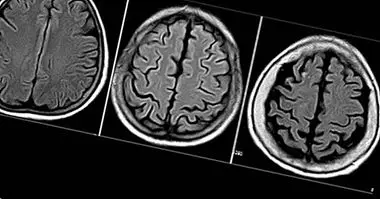Nerves and stress: what is anxiety for?
Do not lose your nerves!
Popularly, there is a conviction that the "nerves" are like little devils who, when fed too much, make our lives hell. In fact, in the popular language the message of "not losing your nerves" is transmitted, which comes to mean "calm, do not get upset". And this advice would be very successful if not for the fateful interpretation that is given.
Really, if we took the "not to lose our nerves" just as it really means, and not as an awful interpretation of what will happen if we lose them (if we are not calm), there would be a lot less anxiety problems and of course, that even more popular goal of "being happy" would be closer .
What are the nerves?
Beyond philosophical or linguistic analysis, it is important that we have a clear idea of what those "nerves" are that are spoken about so often, and especially how nerves influence our daily functioning . Therefore, we are going to treat them under the term activation .
First, you have to attack that negative connotation . These nerves refer to the level of mental, physiological and emotional activation, which translates into specific behaviors that act by trying to moderate that level, always depending on the specific task.
This concept has in clinical psychology much relation with anxiety, stress or fear. A basic characteristic of anxiety is the high activation, both physiological and emotional that the person experiences . Thus, we see how the three terms (anxiety, stress or fear) are only different representations of a high activation.
The types of nerves
This is an important point. It is not the same for us to argue with our partner that the nerves we feel when doing an exam, or respond to a scare that flee from a rabid dog. That is why we say that it is the task that determines what kind of activation and what level of activation we should have. In reference to the types of activation, we must know that our "nerves" act on the basis of two mechanisms.
- One appetitive or approximation , which is activated in relation to positive emotions and behaviors that we like (such as that excitement we feel when we are going to score a goal, or when we try to achieve a professional goal).
- One of defense or avoidance , related to threats or situations that we dislike (examples would be the behavior of flight or survival to a threat, fleeing a danger, the fight against a threat ...).
Is it good to be very activated?
Of course, it can be . This activation, as we mentioned, is useful or necessary depending on the task. Going back to the examples above, a much greater activation is useful if we need to escape from a threat than if we try to pass an exam . Moreover, the very existence of this activation is necessary in order to face daily challenges. It is not necessarily bad. Unless we ourselves decide.
In the same way, in terms of that positive activation, there will also be a differential need for it when it comes to improving the time it takes to run a kilometer, than to receive a kiss (remember that positive activation does not only involve positive emotions, but behaviors that help us or approach that source of activation, as in the case of goal).
Reinterpret the anxiety to live better
What is the real problem? That is to say, Why is it still giving the message of not losing your nerves, of not having a high activation? It is obvious that there are certain situations in which a high activation is not useful, but what if it is? It is not necessary to fear the adrenaline rush of the body, much less the consequences; Still no one has turned into a green muscle monster.
At the clinical level, here is an important problem: the subjective evaluation we make of our activation and the consequences that it will have . It has been shown that the most disabling component of anxiety is not physiological or physical, but mental.
Relax There are techniques to regulate this activation, calls, worth the redundancy, deactivation techniques, among which are muscle relaxation, meditation or relaxation in imagination. And they can be used at the moment in which that activation becomes unnecessary.
But before we get to it, relativize . It's okay to lose your nerves, especially if they're positive nerves. Let's give an opportunity to that positive excitement.Let's give our bodies an opportunity to express themselves too. Maybe he wants to tell us something.



















